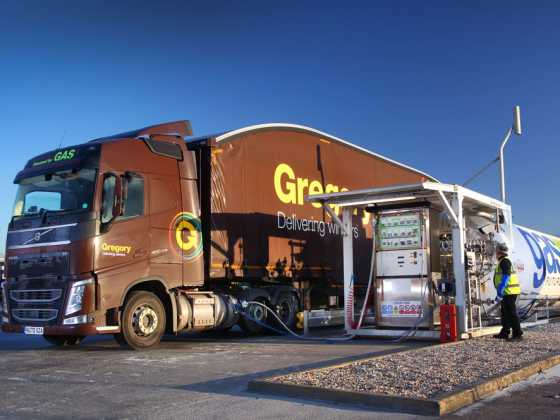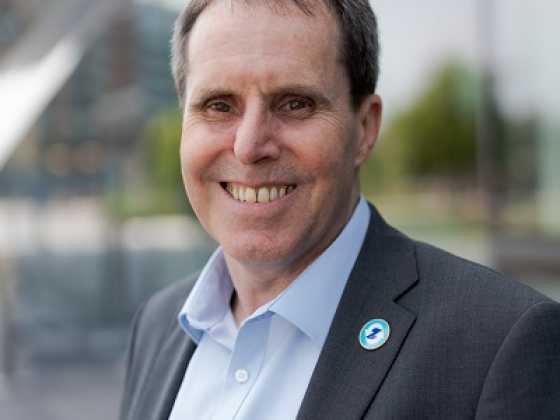Recycling global scrappage schemes
As major car manufacturers Toyota and Vauxhall announce methods for better end of life care for their vehicles, GreenFleet explores how some fleets are handling vehicle parts recycling.
 End‑of‑life vehicles (ELV) have the potential to release dangerous and harmful substances into the environment if they are not stored, treated and disposed of correctly. End‑of‑life vehicles are classed as hazardous waste until they have been fully treated and de-polluted.
End‑of‑life vehicles (ELV) have the potential to release dangerous and harmful substances into the environment if they are not stored, treated and disposed of correctly. End‑of‑life vehicles are classed as hazardous waste until they have been fully treated and de-polluted.
According to the European Commission, ELVs generate between seven and eight million tonnes of waste in the European Union every year, which should be managed correctly. Because of this, the European Union implemented the End‑of‑Life Vehicles Directive in October 2000.
The ELV Directive on end-of-life vehicles aims at making dismantling and recycling of ELVs more environmentally friendly. It sets clear quantified targets for reuse, recycling and recovery of the ELVs and their components. It also pushes producers to manufacture new vehicles without hazardous substances (in particular lead, mercury, cadmium and hexavalent chromium), thus promoting the reuse, recyclability and recovery of waste vehicles.
Manufacturer awareness
In an attempt to challenge key global environmental issues, the Toyota Environmental Challenge 2050 aims to reduce the negative impact of manufacturing and driving vehicles as much as possible. The challenge comprises six individual challenges across three main areas to tackle climate change, water shortages, resource depletion, and degradation of biodiversity.
This includes: ever-better cars, quantified as reducing global average new-vehicle CO2 emissions by 90 per cent by 2050 compared to Toyota’s 2010 global average; ever-better manufacturing (zero CO2 emissions at all plants by 2050); and enriching the lives of communities.
As a key step toward achieving these long‑term targets, Toyota is announcing its Sixth Toyota Environmental Action Plan, which will be enacted between April 2016 and the end of March 2021. It also will promote global rollout of end-of-life vehicle treatment and recycling technologies developed in Japan by establishing two projects: Toyota Global 100 Dismantlers Project and Toyota Global Car-to-Car Recycle Project.
Meanwhile, in the UK, scrappage schemes may be back on the agenda as Vauxhall is re-launching its Scrappage Allowance policy. The British manufacturer is offering new car buyers a minimum £2,000 trade in value when part-exchanging their old car against most new models.
While previous scrappage schemes only applied to vehicles of a certain age, Vauxhall’s scheme has no upper age limit and applies to any manufacturer’s vehicles. The only requirement is that customers must have owned their trade-in vehicle for at least 90 days. All trade-ins will be scrapped by Vauxhall’s contracted end-of-life vehicle partner Autogreen.
Leon Caruso, Vauxhall’s retail sales director, said: “Even customers who think that their current car is only worth a few pounds can now turn it into a £2,000 contribution towards the cost of a new Vauxhall – and that’s over and above any other deals they negotiate with the retailer, such as free insurance.”
Vehicle parts
Other British companies, outside of the manufacturing market, are taking advantage of the recycled vehicle parts programs already on offer. In April this year, British Gas signed a deal for the supply of pre-owned parts with My Green Fleet to reduce its carbon footprint, repair costs and vehicle downtime.
My Green Fleet, a subsidiary of FAB Recycling, removes non-safety parts from damaged British Gas vehicles, recycling them back into the fleet’s supply chain when required.
Colin Marriott, general manager for fleet at British Gas, says: “My Green Fleet is supporting our fleet in a way that is financially sound and environmentally friendly. It has helped to reduce our repair costs and vehicle operational downtime.”
This follows the success of the My Green Fleet programme last year, in which a two‑year extension was agreed with police fleets, after saving £2 million through the scheme in the previous four years. Forty police forces have joined the scheme since its launch. The national police contract for this service was put in place by North Yorkshire Police on behalf of all the UK forces.
Further Information
www.gov.uk/guidance/elv






